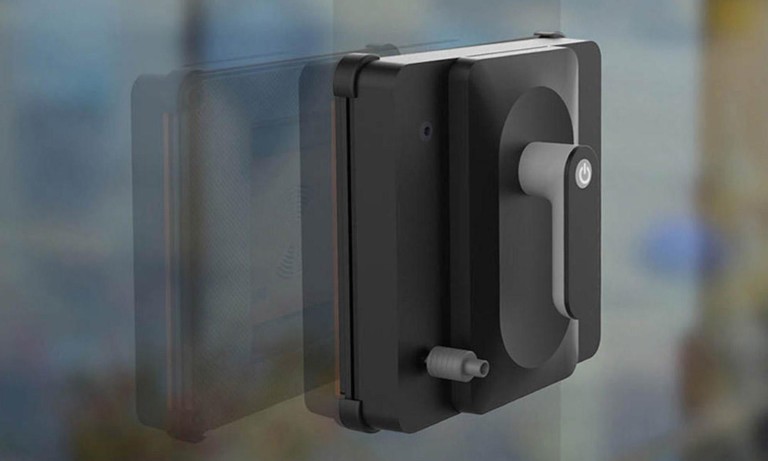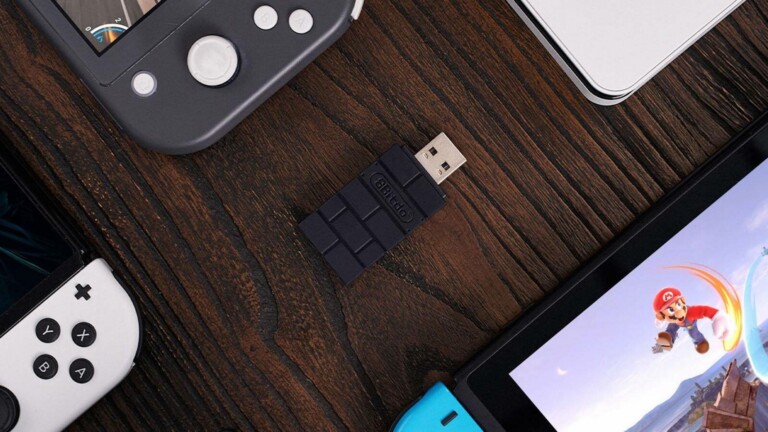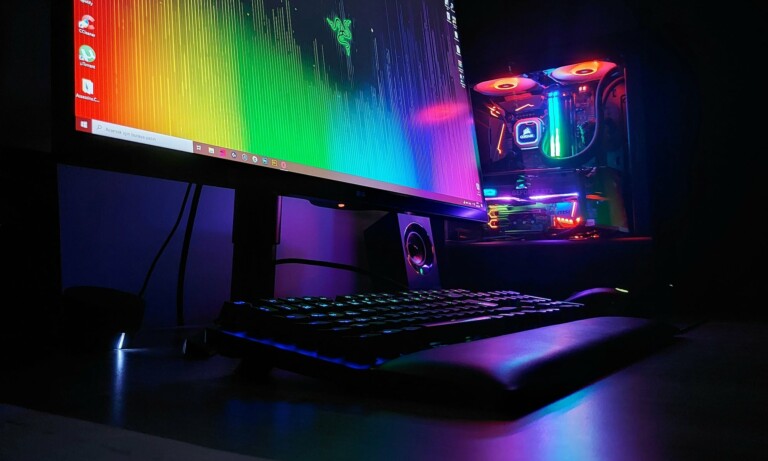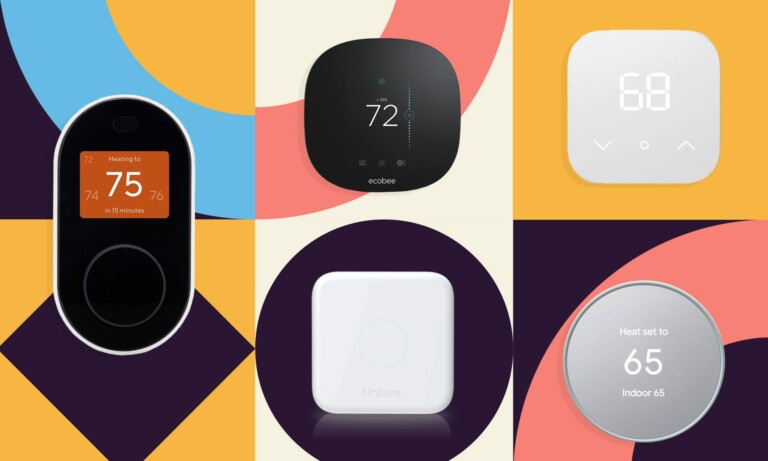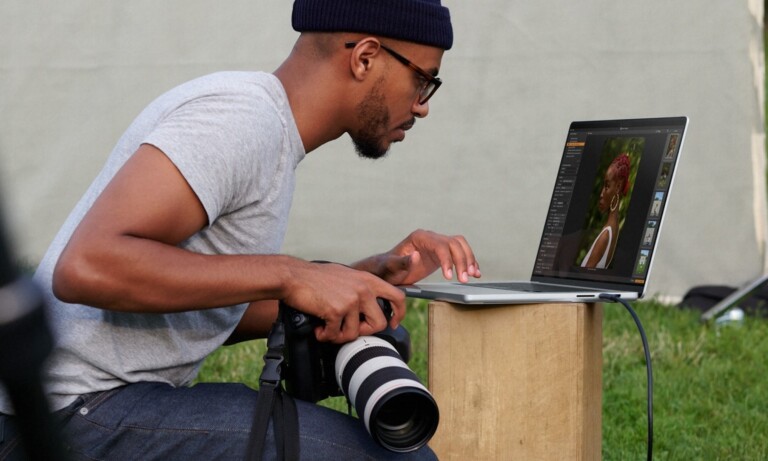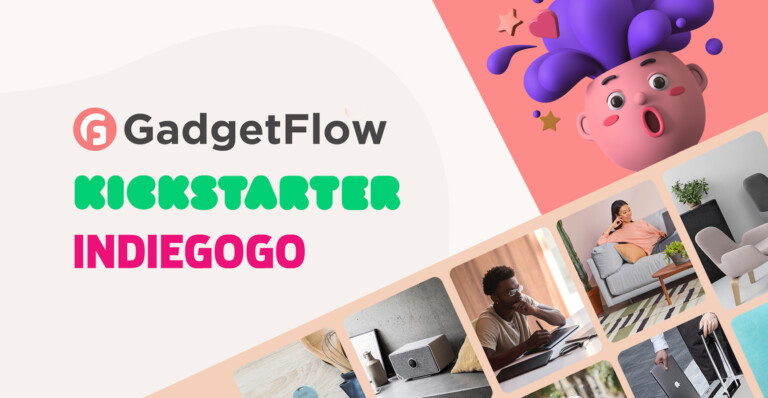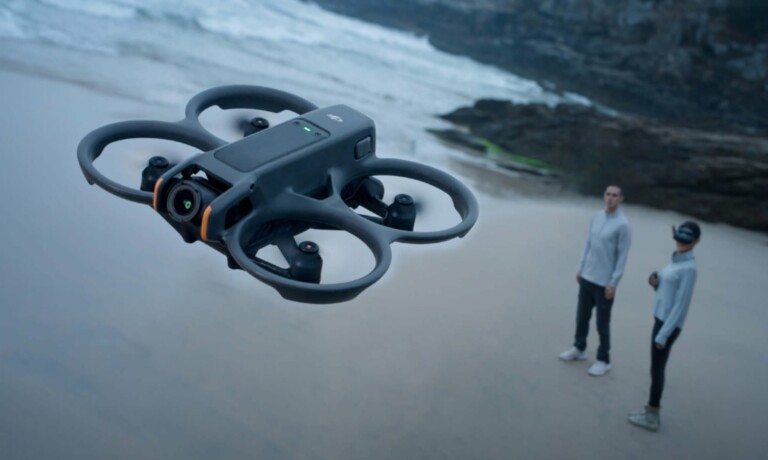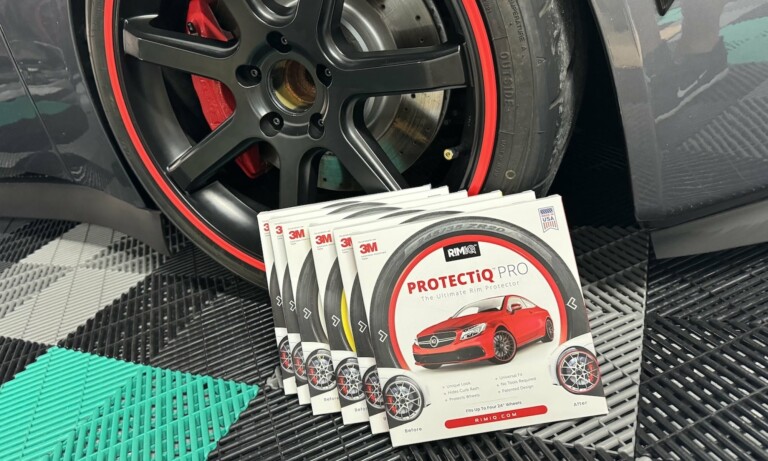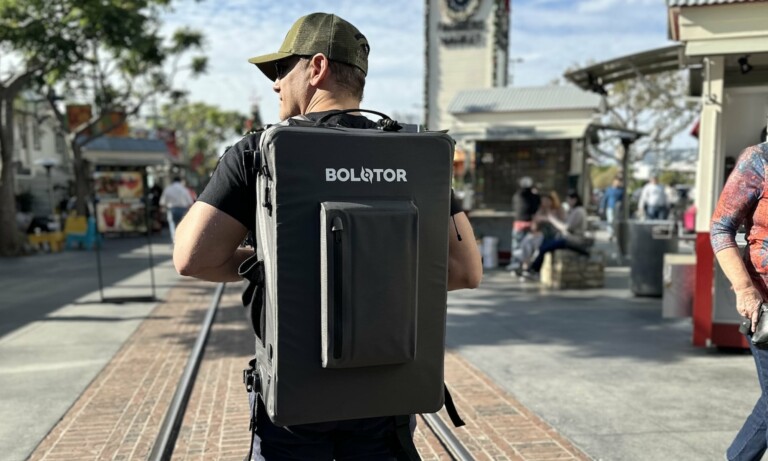Gadget Flow Podcast Episode 7 – Benjamin Ertl from Retailbound
In this podcast, we go to sit down with Benjamin Ertl from Retailbound to talk about selling in retail, crowdfunding and how to prepare your product or brand.

- Retailbound is a retail management firm that helps consumer brands to quickly build out their retail distribution team, infrastructure, and revenue at an affordable price.
- You can find more information as well as contact Benjamin Ertl through his LinkedIn profile.
Benjamin, how are you doing, man?
Benjamin: Doing fantastic, how about yourself?
For people who don’t know who you are or what it is you do, can you just give a snapshot of who you are?
Benjamin: Sure, well, I guess I’m a pretty normal guy. We work with a lot of up and coming consumer product brands; plenty from the crowdfunding space but midsize, larger manufacturers as well. We’re not a sales agency. We’re not a distributor. Instead, we categorize ourselves as a whole service retail management firm. All of our guys and gals here at Retailbound are former large chain retail buyers as well as having experience selling to both retailers and B2B channels. Really, what I do and what I’m all about is I look for unique products that are marketable that are not based on price and we help them to accelerate getting them retail ready; whether it be online retail or offline retail. Once ready, I guess in a nutshell, we become their turnkey sort of outsource retail team. Not only for the sales and the strategy but, most importantly, driving the brand; driving end consumer sales and focus on that long-term growth that is so elusive for so many startups.
How do you search and find good brands and products?
Benjamin: Yeah. So, part of it is objective and part of it is subjective I suppose. Objective being, ok, how much money have they raised? What kind of people are on the team? Is this likely to be a product that will go through with manufacturing and get to the point where retail is more of a priority. But besides the number-based decisions, a lot of times I’ll spend plenty of time at trade shows like CES or House for Show, and a lot of it just comes down to what retailers and consumers are looking at at the time. We’ve worked with everything from AI robotics to posture wearables and, you know, wall décor. And part of it is really just having that eye for what’s marketable, what’s new. And part of it is being in the shoes of the consumer as we all are. And then part of that, of course, is being in the shoes of what buyers are thinking as well.
So; when I think of retail, I think of big box stores like a Target brand or a Walmart or things like that. But I think that might be a little bit of a misconception. Am I right?
Benjamin: Yeah, and I hear that all the time. Retailbound, because of our name, often times people say Walmart, Best Buy, Staples, all of these kinds of big box stores. The 500, 3,000 stores. But this day and age it doesn’t really matter where you’re doing business per se. What really matters is the end consumer sales. And because we’re working with a lot of Indiegogo, Kickstarter-funded projects; a lot of the times start in the first six to eight maybe even twelve months with e-tailers. That might be Brookstone.com, Bestbuy.com, Sharper Image, catalogs, a couple of select distributors. For a lot of these young brands, it’s a matter of establishing a sales history, establishing a reputation in retail before the risk gets low enough to approach some of these larger opportunities where they’re putting you in a thousand, twelve thousand stores. So retail, this day and age, it’s really more of an omnichannel approach. Big brands are finding that out more and more and younger brands are finding out that there’s a sort of slow burn approach to true scalability.
Why don’t you just start from the beginning about your history with Retailbound? How did you get started? What is your story regarding the company?
Benjamin: Sure, my personal story: I was studying abroad in Germany my junior year of college. I was an e-con and German major and so, really it was just getting some experience on the resume, like most college students. I started Retailbound and I saw the opportunity with crowdfunding, with increased VC interest, with improvements to manufacturing. The fact that there are so many products coming out, it’s not slowing down anytime soon. I saw the gap that Retailbound filled and so I interned my junior year of college and one thing lead to another, I did my job well, and after college, I became a full-time hire and here we are.

Learn why you need to consider an outsourced retail team in crowdfunding
I’m gathering that you kind of innovated the crowdfunding side of what you guys do. Am I right? A little bit? Or at least part of that?
Benjamin: Yeah. I don’t want to take too much credit. By no means am I Steve Jobs of crowdfunding. I think there’s a lot of options for crowdfunded brands and young consumer brands to sell more products to the masses. And certainly, not all of them are for the mass market. But where Retailbound comes into play is; usually brands, they think of hiring commission-only sales reps to open the door at retailers and distributors. Or, relying on a distributor themselves for the sales efforts, fulfillment efforts. And those are useful options. And they’re definitely the most affordable. I mean, who wouldn’t want somebody based on performance to get them into retail. But, because that’s such a commodity these days anybody, of course being a little facetious, anybody can hire a sales rep. With enough effort, anybody can get in touch with a buyer or distributor. What it really comes down to after several months of effort after getting into retail is, how can you differentiate the brand? How can you drive end-consumer sales? Because that’s what retail buyers really care about the most. They care about “how you’re going to make me money?” and “are you going to be a hassle to deal with?” And that’s really where Retailbound comes into play the most, it’s getting into retail for our startups. I don’t want to sound like I’m being maybe egotistic but it’s not that difficult to get our clients into retail. The hard work that follows is, like I said before, all about that kind of back-end activity.
What are one or two crowdfunding projects that stick out to you as milestones?
Benjamin: The two examples that I always think of, just because they’ve gone through two or three years of our program our service, so they’re the most kind of mature examples. The first one would be Upright Technologies. They were the first posture wearable in the market. They had a lot of challenges to educate, not only consumers but the retail buyers themselves. We started with them, I believe early 2015, just prior to CES. They were still in the preorder phase so, extremely early stage. After a little over a year, they were doing about $750,000 in retail revenue. And that doesn’t just include retail. They were also selling B2B. Because they were a posture wearable they were selling to consumers but also selling to businesses who were, for example, creating an employee wellness program. Now they’re selling at Apple and they’ve created more products. Their team was really relying on us to execute any and all retail activities while they focused on the product. Another quick example would be Cujo. They were the more or less first router IOT security device on the market. Long story short, a similar type of scenario where they hired us just before CES, just before retail became a hot topic at the company. We took them from thirteen employees to one hundred and thirty employees in about two years. That same preorder phase to about five and a half million. They were, and they are, selling in the most major retailers. In QVC, for example, they sold through more units per minute than Amazon’s Alexa; which is definitely crazy. In this day they’re licensing their IP to telecoms like Comcast. For them and for many startups in hardware products the long-term revenue outlook isn’t just about selling the physical product and then “OK, there we go. What’s out next?” It’s very prudent to have potential subscription models or potential endgame where a company is buying out our designs or buying us out as a company. Sometimes the long-term horizons have to be considered as well.
What are some mistakes that you’ve seen creators make in the past?
Benjamin: I think any creator who’s developing a campaign, they just have to keep in mind that in terms of going to retail, is that going to be your end game? Do you really know what the whole process is going to look like from idea to the end consumer? In a lot of cases, we hear from startups who have had a successful crowdfunding campaign. One year later, they’ve done some sales at Amazon and now it’s time to look at retail and we find out “well, your margins aren’t good enough despite some successful sales.” Or, it’s just not appropriate for these types of retailers based on the time of year. There’s a lot of bottlenecks that can happen if you’re not, at least, taking some key preparation activities out of the picture and putting those in your back pocket for later. In short, having the ability to almost see what’s going to happen before it comes. Part of that is getting the expertise, asking around, and making sure that you put all of your eggs in a basket only to realize later on that you have to go back and fix things.
Are there any good resources for learning about things like that?
Benjamin: I write quite a few articles on LinkedIn myself. But besides just me, there are the bulk blogs. There’s a bunch of accelerators and incubators out there that publish blogs. There are other podcasts, other content. I think, more important than just the resource (it’s xyz.com or so-and-so’s blog), I think what’s most important because everybody has such a specific strategy, product, target audience, price range, and margins. The best thing that a company or founder can do is realize what questions they have to ask, what questions do they have to either Google at the very least or find an expert and ask them. Sometimes people say “how do I get into retail?” Well, that’s really not the right question. The question is how do you position your product so that retailers will be enthusiastic. And they’ll say “Oh yeah, that makes a lot of sense. We need that. I can see that being successful in our stores.” It’s really, how do you ask the right questions to get down the path that you want.
A lot of times people say, especially in retail, you don’t know what you don’t know. It sounds like such a melancholy like “Well, how can I succeed if I don’t know what I don’t know?” It’s always best to find someone that can do in one hour what would take you and your team ten hours to do. And I know that it’s easier said than done. And that’s true but having that kind of thought process and mindset helps startups to avoid a lot of pitfalls.
How can Retailbound help me as a campaign creator? What does the process of working with you guys look like?
Benjamin: For early-stage startups, people who are just considering getting into retail, because we’ve been large chain retail buyers we know exactly what buyers are looking for and what kind of questions they’re going to ask. So, a lot of times just having an hour here or an hour there with one of our consultants goes a long way in demystifying the path towards retail. It might seem that retail is such a faraway thing but gaining some exposure to it and some planning, even if it’s six months ahead of time, can be hugely advantageous. Once companies start to get a little bit closer to actually launching in retail; we have several different services. One of the services, for example, is called this retail prep package where, essentially, a startup will spend just two months to get 100% retail-ready. They can focus on manufacturing and finding investors. We´re the ones doing the work and it really only requires two hours a week of their input. Besides the strategy and the consulting which is, of course, important as far as working with Retailbound this main service, this main model, that we’ve been using for so many Kickstarters is called manage retail marketing. Like I said before, it essentially allows us to be their retail execution partner; you know, sales retail channel marketing and channel management. Usually, the first thirty or forty-five days are spent getting retail ready if we haven’t done that already. Generally speaking the first one to three months is setting up buyer appointments and meeting with typically low hanging fruit to establish that sales history that we talked about. I would say, on average, most of our startups start to see purchase orders in about three to five months which is pretty good.
Where can people connect with you and what you’re doing online?
Benjamin: The most active place would be LinkedIn. I’m always writing, I’m always connecting with people and contributing where I can. If you just search Benjamin Ertl, Retailbound, you’ll find me pretty quickly. Otherwise, I’ve done some content here and there. There’s a website, it’s called retailboundteam.com and people can set up an appointment with me there as well. It’s on my LinkedIn profile page so, again, not too hard to find. We are, actually, giving a free book away that our founder Johan Jacob wrote a while back on getting retail ready. A free paperback book for people who schedule a call with me and just want to bounce some ideas off.
For more such interesting podcasts on crowdfunding, marketing, product placement, and everything in between, subscribe to the Gadget Flow podcast now.
